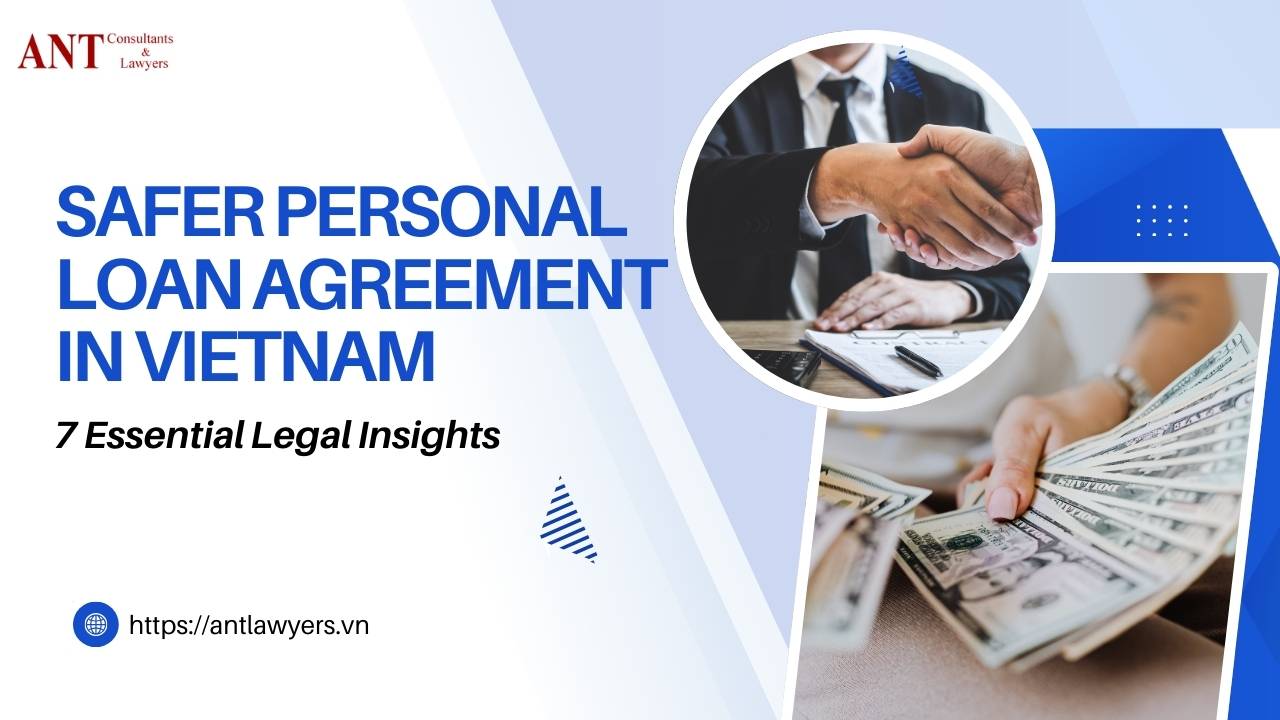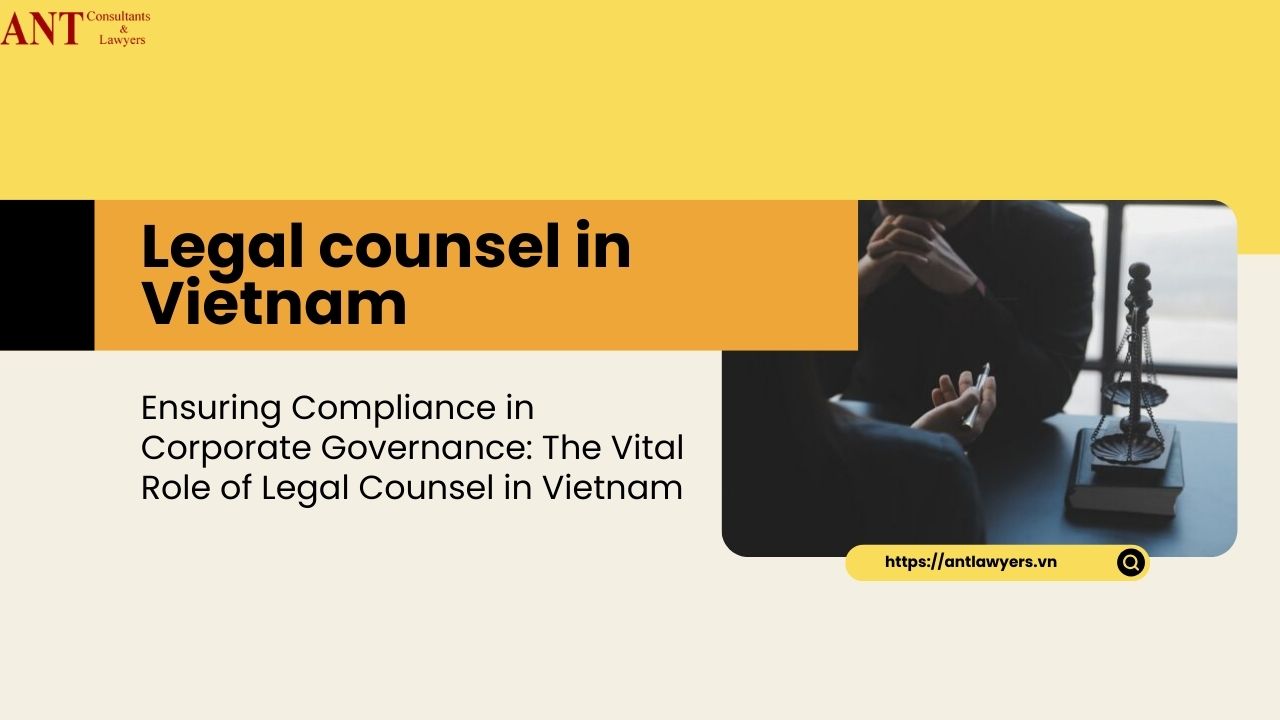Lending money is easy. Getting it back? That’s where it gets tricky.
A friend asks. A family member needs help. A colleague makes a compelling case. You say yes. The money is transferred. Time passes.
But silence follows.
Suddenly, you’re no longer a generous lender. You’re a reluctant debt collector.
In Vietnam, where personal loans are often exchanged informally over trust, too many lenders end up in frustrating legal tricky situation. That’s why creating a personal loan agreement in Vietnam that’s not only clear but enforceable is crucial, especially when repayment becomes a game of hide-and-seek.
In here, we will discuss what you need to know before, during, and after giving a loan in Vietnam, from writing a solid contract to planning for worst-case scenarios. We will also explain the legal structures, practical tips, and protections that help you lend with clarity and confidence.

Understanding the Personal Loan Agreement in Vietnam: Not Just Paperwork, But Power
A personal loan agreement in Vietnam is a legally binding contract where one party (the lender) agrees to give a sum of money to another (the borrower), with a commitment to repay under defined terms. While it might sound basic, it is important to stress that it would be better to rely on written arrangements.
Why Formalize Personal Loan Agreement in Vietnam?
- It defines repayment terms, preventing confusion or manipulation.
- It allows you to prove the loan in case of dispute or court proceedings.
- It protects relationships by setting expectations from the beginning.
What Personal Loan Agreement in Vietnam Should Be Included?
- Full names and ID numbers of both parties
- Date of the agreement and disbursement
- Total loan amount (in VND or foreign currency, if applicable)
- Interest rate (or state 0% if interest-free)
- Repayment schedule (dates, amounts, frequency)
- Late payment penalties
- Collateral (if any)
- Dispute resolution method (mediation, arbitration, or court)
Always prepare both a Vietnamese and English version if dealing with an expat borrower.
Legal Landscape: Can You Really Enforce a Personal Loan Agreement in Vietnam?
Yes, but preparation matters.
Under Vietnamese Civil Code, a personal loan agreement in Vietnam is valid as long as it reflects voluntary consent, lawful purpose, and clarity.
Enforceability Factors in Vietnam
- Written contracts carry higher legal weight.
- Collateralized loans can involve notarization and registration with local authorities.
Lending as a Businessperson, Not a Bystander
Before giving a loan, ask yourself:
- Can I afford to lose this amount?
- Do I trust this person’s repayment ability or just their words?
- Am I prepared to take legal action if things go south?
Set Emotional Boundaries
Vietnamese culture values harmony, but conflict avoidance often leads to lost loans. Lending money is a business transaction, it should be treated with the same caution and documentation as any other.
Drafting the Personal Loan Agreement in Vietnam: A Step-by-Step Guide
Let’s go beyond theory. Here’s how you draft a personal loan agreement in Vietnam that protects you in Vietnam.
Step 1: Identity Verification
Collect valid ID, and contact info. For foreigners, obtain passport and visa/residence card info.
Step 2: Define the Terms Clearly
Use short, clear clauses. Avoid vague terms like “repay when able.”
Step 3: State the Interest Rate
Vietnamese law caps interest rates per year in civil transactions unless otherwise governed by other legislation (like commercial lending).
Step 4: Add a Repayment Schedule
This is your proof of intent. Include:
- Monthly/quarterly payments
- Grace periods (if any)
- Late fees or additional charges
Step 5: Include Dispute Resolution Clause
- Specify that disputes will be handled, competent courts in Vietnam (or arbitration, if both parties agree, and law allows).
Step 6: Sign in Duplicate
Each party keeps one signed copy.
Protecting Yourself with Legal Add-Ons
Collateral: Turn a Promise into Security
If you’re lending a large amount, collateral can be key, land-use rights. This must be registered with the authorities and notarized.
Guarantors: Another Layer of Security
A guarantor can be legally bound to repay the debt if the borrower fails. It’s particularly helpful when lending to someone with an unstable income.
Notarization: The Legal Seal of Strength
While not required, notarization proves that:
- The agreement was signed voluntarily
- The terms are clear and legally reviewed
- The signatures are genuine
When Repayment Fails: Vietnam’s Legal Recovery Options
Even with a strong personal loan agreement in Vietnam, debt collection can be complicated. Here’s your roadmap:
Step 1: Friendly Reminder and Follow-Up
Sometimes it’s an honest mistake. A reminder message might resolve things quickly.
Step 2: Send a Demand Letter
If silence continues, draft a formal written demand letter giving a repayment deadline before legal action is initiated. This can be prepared by a lawyers in Vietnam whom provide legal services in Vietnam to show seriousness.
Step 3: Mediation or Court Action
You can:
- File in Vietnamese People’s Court (civil court);
- Use arbitration, if stated in the contract and law allows;
- Leverage legal fees as part of the claim, if outlined beforehand
Step 4: Enforcement
Once a judgment is issued, you can seek enforcement through the civil judgment enforcement agency. They can seize assets, freeze accounts, or force auction of collateral.
Planning for Recovery Before You Lend: The Ultimate Checklist
Many lenders realize too late that they’ve skipped critical steps. Here’s your Vietnam-ready pre-loan checklist:
- Full identity verification (borrower and guarantor)
- Written loan agreement in Vietnamese (plus English if needed)
- Interest rate clearly stated and within legal limits
- Payment terms with dates and methods
- Late payment clause and penalties
- Notarization (optional but recommended for large loans)
- Collateral agreement (if applicable)
- Guarantor agreement (if applicable)
- Dispute resolution clause
It would be better to transfer the loan via bank with reference text (e.g., “Loan to [Name] under agreement dated [Date]”) to build proof.
Vietnam-Specific Nuances to Keep in Mind
- Judicial delays: While Vietnam’s court system is improving, civil cases may take months to resolve. Mediation or arbitration may be faster.
- Foreign lenders: Ensure you’re not violating foreign exchange or investment restrictions. Lending across borders may need legal clearance depending on the amount and currency involved.
Don’t Just Hope for Repayment. Plan for It.
Lending money should be generous, not reckless. A well-drafted personal loan agreement in Vietnam transforms a verbal promise into a legally enforceable document. It protects your money, your relationships, and your peace of mind.
In Vietnam, where informal lending remains common, more people are learning, sometimes the hard way that paperwork is power.
About ANT Lawyers, a Law Firm in Vietnam
We help clients overcome cultural barriers and achieve their strategic and financial outcomes, while ensuring the best interest rate protection, risk mitigation and regulatory compliance. ANT lawyers has lawyers in Ho Chi Minh city, Hanoi, and Danang, and will help customers in doing business in Vietnam.
How ANT Lawyers Could Help Your Business?
You could reach ANT Lawyers in Vietnam for advice via email ant@antlawyers.vn or call our office at (+84) 24 730 86 529



